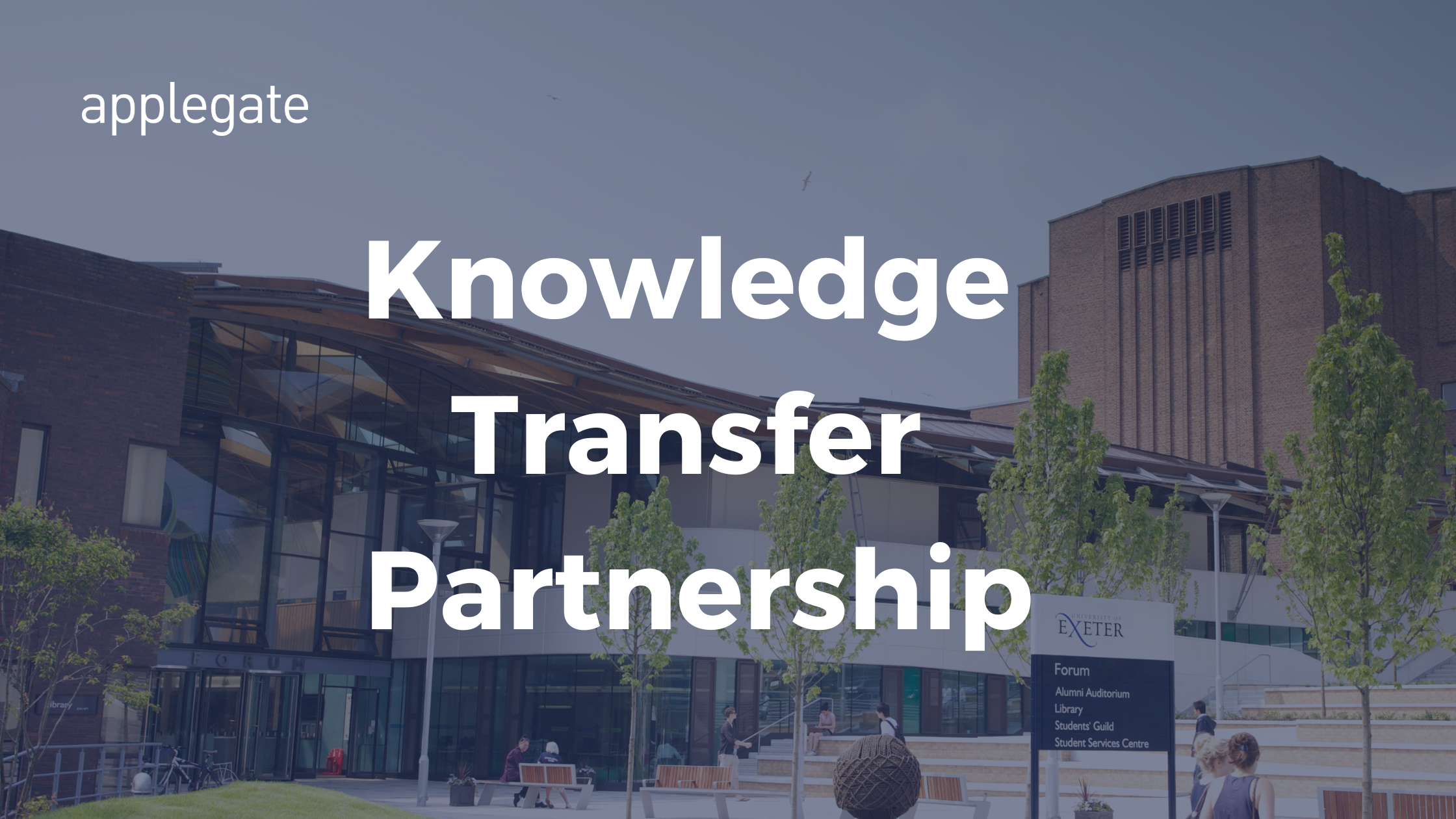.png?width=1080&name=www.hello.applegate.co.uk%20(5).png)
Commenting on her work at the business-to-business marketplace, Aimée said: “I’ve really enjoyed the experience, thanks to the combination of having inspiring colleagues and an important, challenging problem.
It’s a refreshing reminder of how business needs and real-world applications should be accounted for in research, particularly the relative speed at which changes often need to be made compared to a generally slower, longer-term process of academic research.”
The University of Exeter’s Innovation, Impact and Business (IIB) team works across research and education to build connections between research and external partners locally, nationally and globally.
Communication is key, and this is an aspect of the partnership that Aimée highlighted as particularly strong.
“It is hugely beneficial to collaborate with data science experts at the University of Exeter, as they keep us updated with state-of-the-art machine learning methods and research opportunities.
“We have weekly meetings with representatives from both Applegate and the University, and I as a KTP Associate also have access to all the university facilities, such as research groups, journal clubs and computational facilities,
“All this allows Applegate to very quickly learn about, discuss and apply novel AI (artificial intelligence) methodology to company processes.”
Applegate helps buyers find the goods and services their organisation needs. Quick, easy and free-to-use, our Cloud-based procurement platform enables buyers to request multiple quotes for anything from business services to engineering components to promotional items.
Our database features information on millions of products and services from many thousands of companies - buyers can either search for what they need themselves or just fill out a request for quotation and let us do the rest.
Discussing how Applegate has implemented machine learning into its processes, Aimée commented: “We already have a test version of the machine learning supplier-buyer matching tool available to the buyer management team. This means that staff can continue their existing matching process while familiarising themselves with machine learning outputs, and feeding back to me on how to further improve the quality and ease of use of the machine learning tool.
“The tool has already proven useful in quickly finding suitable suppliers for complex or unique RFQs (requests for quotation), saving staff plenty of time and allowing buyers and good quality potential suppliers to be linked up much faster.”
The partnership isn’t the only collaboration between Applegate and the University either, as Aimée explains.
“It also links up with another ongoing collaboration between Applegate, The University of Exeter and Bristol-based software developers Ghyston. The project, SupplyDevon, aims to support local communities, reduce carbon impacts and reduce discrimination in the supply chain process, all by encouraging local supply chains.”
After launching in February 2021, SupplyDevon has experienced considerable success by connecting local suppliers and those that would like to buy the goods. Since the start of 2022, over £500,000 worth of contracts have been awarded through the online platform.
Organisations that have used SupplyDevon include Teignbridge Council, Torbay and South Devon NHS Foundation Trust, and Torbay Council.
The latter pledged to trial SupplyDevon for all spending between £5,000 and £50,000 for nine months in September 2021. Working with the University of Exeter, it was revealed that Torbay Council’s use of the platform resulted in 3,188kg of carbon dioxide equivalent savings, which is the equivalent of over 76 journeys from Barnstaple to Torquay.


.png?width=1080&name=www.hello.applegate.co.uk%20(5).png)